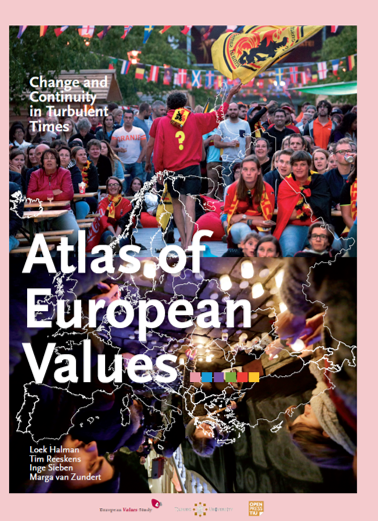Values, norms, and signature
Do Europeans have shared values? Are those values subject to change? And if so: in what direction? May 2022 saw the release of the third edition of the Atlas of European Values, which attempts to answer these questions. Published once every nine years, the Atlas provides an overview of the development of Europeans' values over the years in terms of national and European identity, prosperity, migration, sustainability, solidarity, and democracy.

One of the full professors who spearheaded this comprehensive research was Tilburg sociologist Ruud de Moor (1928-2001), Rector Magnificus in 1968 and from 1983-1991. This large-scale sociological research first took place in 1981, in ten different countries. In the last edition, 36 countries participated.
The study is being conducted independently, but certainly its inception cannot be separated from the special, Catholic signature of Tilburg University. This has changed greatly in nature, however. Article 9 of the original statutes (1927) imposed an obligation on faculty to "teach in the spirit of the Roman Catholic Church." That principle became increasingly problematic over the years because of secularization, beginning in the 1950s, and because of the principle of appointing the best candidate. Consequently, the provision in Article 9 was repealed in the 1970s.
Research of the shared values of Europeans (pictured above)
The Catholic signature is still expressed today in the institution's foundation name, the student parish, the Eucharistic celebration at the opening of the academic year, and the prayers at the beginning and end of PhD defense ceremonies, and other ceremonies. The importance of those expressions declined decidedly over time, and in the 1960s, the administration even appeared willing to relinquish the special, Catholic signature to allow for the arrival of a medical school. The signature was and is regularly the subject of debate, for example, in Studium Generale programs.
Under the articles, the university is still Catholic and if you look carefully you will find traces of that tradition in expressions such as the Atlas. The same can be said of the opening prayer at academic sessions, the educational vision (Weaving Character), Zwijsen Building (named after the nineteenth-century bishop who championed better education), the existence of a specific program such as the School of Theology, the student church Maranatha, and the possession of several works of art that refer to Catholic origins.
More about history and academic heritage
The Tilburg University academic heritage is a very diverse set of archives, visual materials, collections, devices, recorded stories, et cetera that relate to the history of the university.